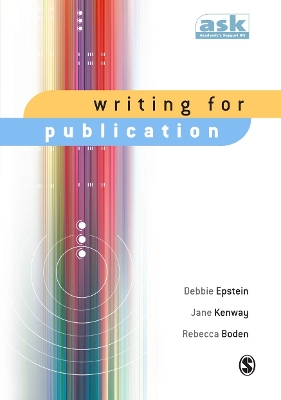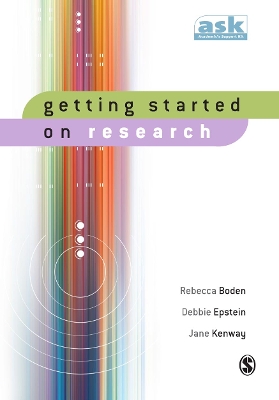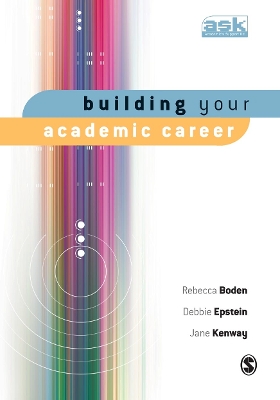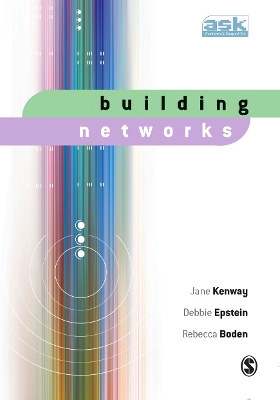The Academic's Support Kit
7 total works
Academic's Support Kit
by Professor Rebecca Boden, Professor Debbie Epstein, and Jane Kenway
-Michelle Fine, The City University of New York
`Comprehensive and comprehendible information, alongside sensible, practical strategies and exercises, that I will be able to employ when developing my own academic career and to facilitate my staff development and peer mentoring work' - Sandra Sinfield, London Metropolitan University
`The Kit is excellent. And it is not just for academic starters either. This is a collection of books which every academic could refer to confident that she or he will benefit from the experiences shared, the perspectives offered and the advice given' - Robert Morrell, University of KwaZulu-Natal
`This is an eminently practical guide to getting ahead as a university academic employee' - Clive Seale, Brunel University
'The ASK Box would be a useful addition to the bookshelves of any research group or teaching team with new and developing researchers. It would be helpful for any department wanting to support its members in the development of their careers. It would also be useful for any senior institutional manager (who may have been an academic themselves) as a reminder of what they as established academics may have forgotten - the complex. Competitive and increasingly tortuous process of becoming an academic.' - Educate
The Academic's Support Kit is a unique resource that provides all the information, skills and guidance to support academic professional development.
Written by a team of experienced and international authors, the Kit offers a wealth of references, techniques and practical advice in the following 6 books:
- Building Your Academic Career
This volume encourages you to take a proactive approach to getting what you want out of academic work whilst being a good colleague
Find out more
- Getting Started On Research
In contrast to the many books available on techniques of data collection and analysis, this volume deals with the many other practical considerations around actually doing research
Find out more
- Writing for Publication
This book deals with a number of generic issues around academic writing and considers writing refereed journal articles, books and book chapters in detail as well as other, less common, forms of publication for academics
Find out more
- Teaching and Supervision
This volume is on presents explanations and possible strategies designed to make your teaching and supervision work less burdensome, more rewarding (for you and your students) and manageable.
Find out more
- Winning and Managing Research Funding
The pressure to win funding to do research is felt by nearly all academics worldwide. This book details strategies that you might adopt to get your research projects funded, and manage your research projects once they are funded.
Find out more
- Building Networks
Having good networks is key to achieving what you want in academia. This book describes the kinds of networks that you might build across a range of settings, talks about the pros and cons involved and gives practical guidance on networking activities.
Find out more
All 6 titles are also available to buy individually. Please see each title's webpage for more details.
This Kit will be an indispensable guide, for those starting out on an academic career, and those needing to make the next step up the ladder. It will also be welcomed as the complete resource for managers and staff development teams.
Winning and Managing Research Funding
by Professor Rebecca Boden, Jane Kenway, and Professor Debbie Epstein
Teaching and Supervision
by Professor Rebecca Boden, Jane Kenway, and Professor Debbie Epstein
Getting Started on Research
by Rebecca Boden, Jane Kenway, and Debbie Epstein
Building Your Academic Career
by Rebecca Boden, Debbie Epstein, and Jane Kenway




